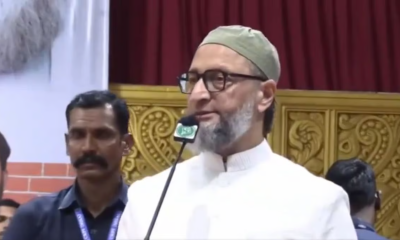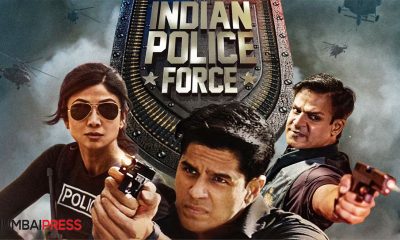Maharashtra
Attention Mumbaikars! Things To Keep In Mind While Casting Your Vote On November 20, 2024
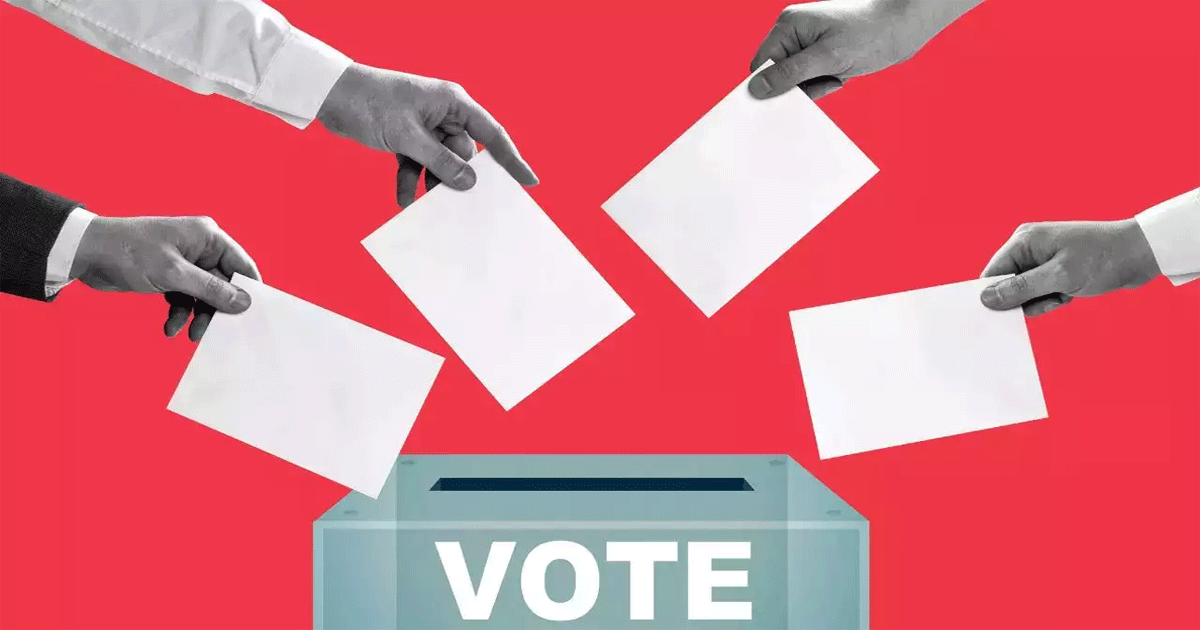
As Maharashtra gets ready for the forthcoming Assembly Elections, it is crucial for us as residents to exercise our right to vote and choose our preferred candidates with care. Even if you have voted before, you still need to follow the rules and safety measures when going to the polling place and voting. When you go to the voting centre on November 20, remember these things when you vote at your designated election centre.
Things To Check
Check Your Name In Voter’s List
First and foremost, you need to check your name in the voter’s list, without which you would not be allowed in the voting centre premises and therefore will not be able to cast your vote.
Where to check voter registration status?
Voting is allowed only for individuals listed in the Voter List (also called electoral roll). Confirm your name on the list by either:
Accessing the website https://electoralsearch.eci.gov.in/
If you want to contact the Voter Helpline 1950, please remember to include your STD code before dialling.
Send an SMS to 1950 for EPIC, which stands for Electors Photo Identity Card and is commonly referred to as a voter ID card. If your EPIC number is 12345678, text ECI 12345678 to 1950.
Get the Voter Helpline App on Android and the Voter Helpline App on iOS.
Know Your Candidates
To cast your valuable vote, the most important aspect is to know the candidates electing from your constituency. Voters can visit the Candidate Affidavit Portal, download the Voter Helpline App (Android) and Voter Helpline App (iOS) to see the list of candidates, or simply visit the Election Commission of India (ECI) website to search for constituencies and know your candidates.
What Should You Carry With Yourself?
Following is the list of things you must carry while visiting the voting centre to cast your vote:
EPIC (Voter ID card)
Passport
Driving Licence
Service Identity Cards with photograph issued to employees by Central/State Govt./PSUs/Public Limited Companies
Passbooks with photograph issued by the bank or post office
PAN Card
Smart Card issued by RGI under NPR
MNREGA Job Card (Mahatma Gandhi National Rural Employment Guarantee)
Health Insurance Smart Card issued under the scheme of Ministry of Labour
Pension document with photograph
Official identity cards issued to MPs/MLAs/MLCs
Aadhaar Card
How Is Voting Process Carried Out?
The initial polling official will verify your name on the voter list and confirm your ID proof.
The second polling official will mark your finger with ink, provide you with a slip, and ask for your signature on a register (Form 17A).
You must hand over the slip to the third polling official, display your inked finger, and then make your way to the polling booth.
Electronic devices such as cell phones, cameras, and other gadgets are prohibited in polling booths.
How Do You Cast Your Vote?
EVM stands for Electronic Voting Machine, and VVPAT stands for Voter Verifiable Paper Audit Trail (VVPAT), which is machinery inside the polling ballot that helps you cast your vote.
There are several columns on the ballots that help you to recognise candidates, political parties, the serial number given to the candidates, and their image, along with a blue button on the screen.
Cast your vote by pushing the ballot button next to the candidate’s symbol on the Electronic Voting Machine (EVM); a beep will confirm your selection.
Verify the ticket visible through the clear window of the VVPAT device. The slip displaying the candidate serial number, name, and symbol will be visible for 7 seconds before being placed in the sealed VVPAT box.
If you are not satisfied with any candidate, you have the option to select NOTA, which stands for None of the Above, located as the final button on the Electronic Voting Machine (EVM).
To get more details, visit the Voter Guide at ecisveep.nic.in.
Regulations To Be Followed
Any individual not participating in election duties is prohibited from entering a 100-meter perimeter around any polling station from 6 am to 12 am on the day of the election.
No loitering, joining assemblies, or forming groups will be permitted on highways, streets, lanes, or any public place near polling stations.
There will be distinct lines for males and females outside polling places. Voters will be allowed entry one by one according to their place in line, with oversight from the presiding officer.
Voters are prohibited from bringing or using mobile phones, wireless devices, or other electronic gadgets within a 100-meter radius of polling stations, unless authorised election or police personnel.
The rules also forbid the positioning of election campaign items like posters or banners within a 100-meter radius of polling booths.
Using loudspeakers or megaphones in this area is prohibited to uphold the integrity of the voting process and avoid influencing voters inappropriately.
Electronic devices such as mobile phones and tablets are prohibited inside the voting centre; if you bring them, you must surrender them.
Maharashtra
Five-year-old kidnapped girl rescued from Vakola, five arrested, girl held hostage by uncle in Panol
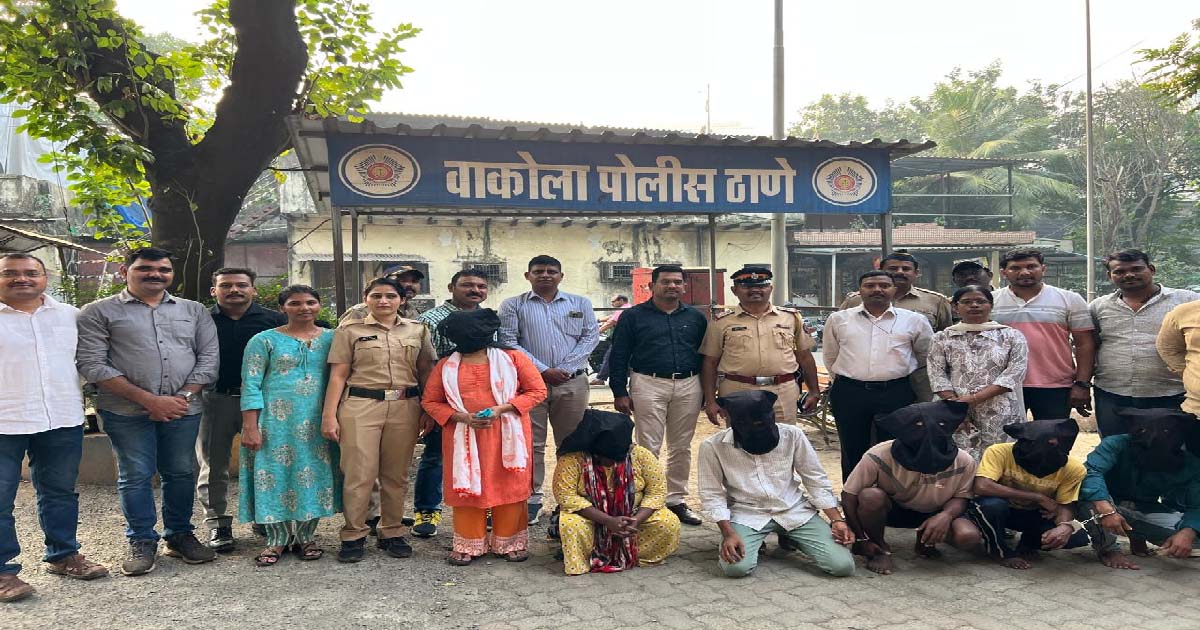
Mumbai: Police has claimed to have arrested five accused, including uncle Momani, on charges of kidnapping a five-year-old girl. The gang had planned to kidnap and sell the girl. A case of kidnapping of a minor girl was registered on November 22 under the limits of Vakola police station. Several teams were formed in Zones 8 and 7. During the investigation, it was revealed that a suspicious rickshaw had gone to Panvel and returned. A man, a woman, a rickshaw driver and the girl were in the rickshaw between 2 and 3 am. The kidnappers were identified as the girl’s uncle Lawrence Niconelis Fernandes, 42, and his wife Momani, who is a Mangal degree, both of them had gone to Panvel by rickshaw and were going to sell the kidnapped girl. The kidnapped girl was recovered from the possession of their acquaintance Sans. The Sans gave details about the wanted accused during the investigation, after which Windra Dinesh Chavan, 60, and Anjali Ajit Korgaokar, 57, were arrested from New Panvel, Raigad. The kidnapped girl was sold for Rs 1,80,000 and Vrinda Chavan was taken into custody from her house and the girl was safely brought to Vakola. This operation was carried out by DCP Manish Kalwaniya on the instructions of Mumbai Police Commissioner Deven Bharti and the girl was recovered safely. In this case, the police have arrested rickshaw driver Latif Abdul Majeed Sheikh, 52, a resident of Santa Cruz, Lawrence Nicholas Fernandes, 42, a laborer from Raigarh, Mangal Dagra Jadhav, 38, from Raigarh, Kiran Maruti Sons, 38, from Panvel, Vrinda Vanish Chavan, 60, from Raigarh and the investigation is underway.
Maharashtra
Maharashtra Govt Launches Major Push For Women’s Economic Empowerment In Rural & Tribal Areas
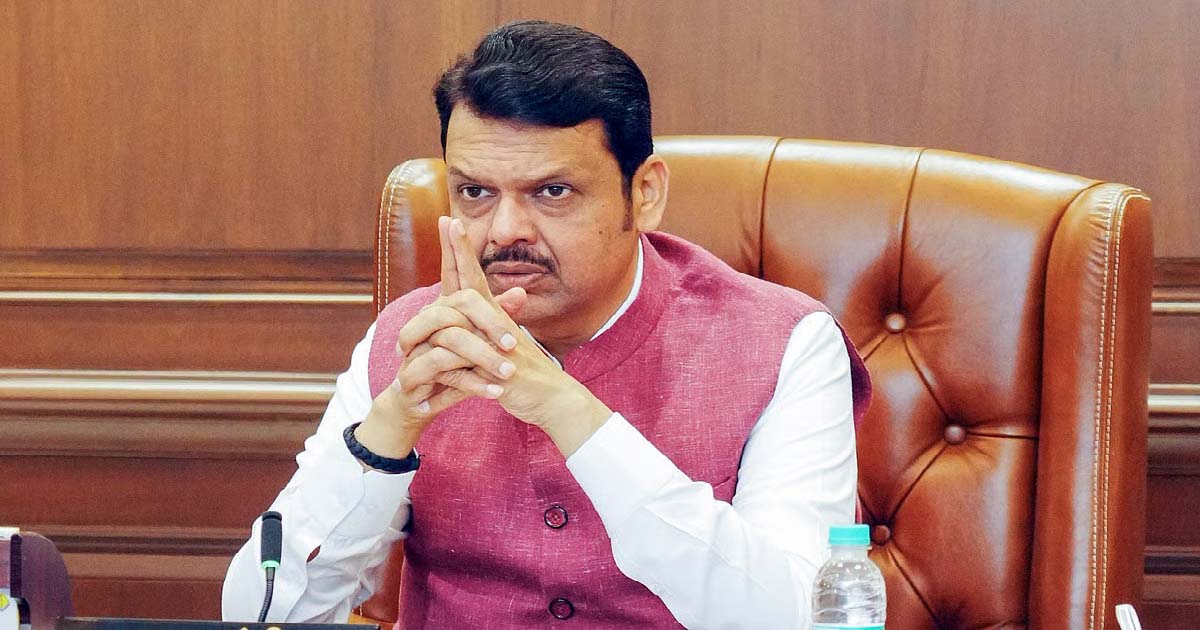
Palghar: The Maharashtra government has initiated a major push toward strengthening economic prospects for women in rural and tribal regions, with Chief Minister Devendra Fadnavis stating that women’s economic empowerment remains the administration’s top priority.
On Monday, the Umed–Maharashtra State Rural Livelihoods Mission (MSRLM) under the Rural Development Department signed a Memorandum of Understanding (MoU) with the Raah Foundation to expand sustainable livelihood opportunities for women across the state.
Fadnavis said the collaboration would play a crucial role in enhancing income-generation avenues for women in remote and tribal regions. “This MoU will significantly help in expanding livelihood opportunities for women by tapping into their inherent skills and local resources,” he said, highlighting ongoing efforts to create economic development pathways across rural Maharashtra.
The agreement aims to empower women in Palghar, Nashik, and Raigad districts—regions with a large tribal and rural population—by integrating climate-resilient practices, smart agriculture, water security initiatives, and nature-based livelihood programmes.
The partnership will combine the technical expertise of the Raah Foundation with Umed’s extensive network of Self-Help Groups (SHGs), enabling rural women to access training, resources, and market linkages.
Under the collaboration, two nursery development and bio-production centres will be set up in each of the three districts, expected to benefit more than 5,000 women and farmers. Additionally, a women-led Food Forest Project will be launched, with each participant expected to earn up to ₹1 lakh annually.
The initiative will also integrate multiple government schemes—including the Van Dhan Scheme, PMFME, NHM, and RSETI—to ensure women farmers receive support in the form of credit, insurance, training, and market access.
Officials said the collaboration aligns with Maharashtra’s Vision 2030, the United Nations Sustainable Development Goals (SDGs), and India’s National Climate Commitments (NDCs), positioning the project as a scalable model for women-led, sustainable economic growth.
The government expects the initiative to create measurable improvements in income, resilience, and financial autonomy for thousands of rural women—ushering in a transformative shift in livelihood opportunities across the state.
Maharashtra
Three arrested for attempted murder at Goregaon RA signal

Mumbai: Police has claimed to have arrested three people on charges of attempted murder. According to details, on November 22, the complainant Zohaib Naeem Baig, 22, was passing by on his motorcycle at the RA signal in Goregaon. Due to the signal being off, three unknown assailants attacked him and snatched the motorcycle keys and stabbed him in the stomach with a sharp weapon for no reason. After which the police registered a case of attempted murder and started searching for them. According to the statement of the complainant and his friend, two people have been arrested from the Goregaon area, along with one from the RA. The motorcycle and the knife used for the attempted murder have also been recovered from their possession. The accused have been identified as Naeem Shahabuddin Dhobi, 26, Sameer Shahabuddin Dhobi, 30, and Vinod Kumar Padiyaji, 29. This operation was carried out on the orders of Mumbai Police Commissioner Devin Bharti and the accused have been arrested and the murder weapon has also been seized.
-

 Crime3 years ago
Crime3 years agoClass 10 student jumps to death in Jaipur
-

 Maharashtra1 year ago
Maharashtra1 year agoMumbai Local Train Update: Central Railway’s New Timetable Comes Into Effect; Check Full List Of Revised Timings & Stations
-

 Maharashtra1 year ago
Maharashtra1 year agoMumbai To Go Toll-Free Tonight! Maharashtra Govt Announces Complete Toll Waiver For Light Motor Vehicles At All 5 Entry Points Of City
-

 Maharashtra1 year ago
Maharashtra1 year agoFalse photo of Imtiaz Jaleel’s rally, exposing the fooling conspiracy
-

 National News1 year ago
National News1 year agoMinistry of Railways rolls out Special Drive 4.0 with focus on digitisation, cleanliness, inclusiveness and grievance redressal
-

 Maharashtra1 year ago
Maharashtra1 year agoMaharashtra Elections 2024: Mumbai Metro & BEST Services Extended Till Midnight On Voting Day
-

 National News1 year ago
National News1 year agoJ&K: 4 Jawans Killed, 28 Injured After Bus Carrying BSF Personnel For Poll Duty Falls Into Gorge In Budgam; Terrifying Visuals Surface
-

 Crime1 year ago
Crime1 year agoBaba Siddique Murder: Mumbai Police Unable To Get Lawrence Bishnoi Custody Due To Home Ministry Order, Says Report



